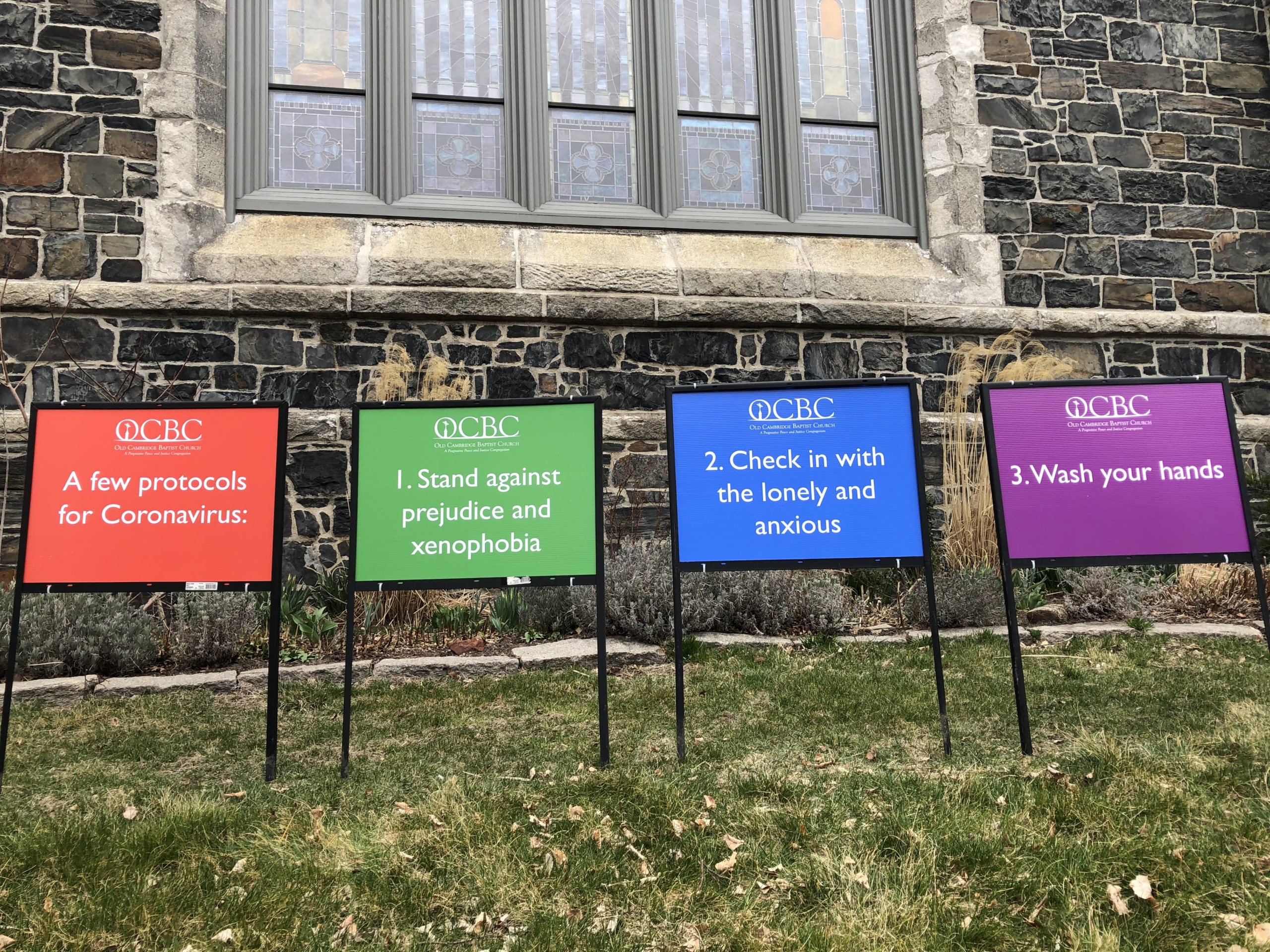 From the first century onward, the church has practiced faith in community during times that seem apocalyptic. From persecution to plague and scores of other precarious situations churches have faced across the globe from age to age, we’ve been called upon to practice community with creativity and compassion when faced with the unpredictable and unprecedented.
From the first century onward, the church has practiced faith in community during times that seem apocalyptic. From persecution to plague and scores of other precarious situations churches have faced across the globe from age to age, we’ve been called upon to practice community with creativity and compassion when faced with the unpredictable and unprecedented.
“Try treating precaution-taking as a creative experiment in cultivating community differently, not just more cautiously.”
The pandemic COVID-19 (coronavirus) challenges churches to cultivate practices of community that meet the novel needs created by this global health emergency. And it is a challenge we are up to, having developed deep wisdom for such times through the ages. Here are three ways that my congregation in Cambridge, Massachusetts, is grappling with what this time of planetary precarity means for us as a caring community of faith:
Care-as-precaution for those with precarious health
This aspect of care is the most front-and-center in faith communities around the world. But how we situate these precautions within our sense of call as a community of faith is important. My congregation has a long history of attending to the lived experience of the most vulnerable among us, acting to ensure their health, safety and well-being in whatever ways we are able. It is an ethical commitment that informs our actions in relation to justice-seeking with the undocumented made vulnerable by unjust immigration policy, racial minorities made vulnerable by a system of racialized violence and injustice, LGBTQ people who have often experienced vulnerability in places of worship, and many others.
With the increasing spread of COVID-19, we are called upon as a congregation of compassion, peace and justice to attend to the health, safety and well-being of those made vulnerable to illness due to compromised immune systems, age and underlying health concerns.
Following the best advice available from the Centers for Disease Control and local health authorities, we also want to treat these necessary “precautions” as an invitation to creativity and experimentation, not simply safety and caution, asking:
- How can novel ways of greeting one another beyond the perfunctory American handshake renew our sense of connection to one another during the passing of the peace?
- How might communion liturgies change in ways that open renewed meaning for congregations who have been practicing the same ritual for decades, all while taking necessary sanitary precautions?
- Will shifting some of our work to virtual formats help us streamline our “business” so that, when these precautions are lifted, we’ll find that we have more time for community building activity?
- Will we develop new ways of being together from afar that we discover are really helpful practices for those who can’t regularly join our gatherings, even in more “normal” times?
Take every precaution that you need to take in order to care for the vulnerable of body in your congregation and community. Know that these precautions – even canceling in-person gatherings for work and worship, as we are now doing in coordination with several neighboring congregations – are acts of social responsibility undertaken from an ethic of love for your community. Making these difficult decisions early rather than waiting to see what comes next will help “flatten the curve,” slowing the spread of infection and benefiting the health of our communities.
Try treating precaution-taking as a creative experiment in cultivating community differently, not just more cautiously.
Care-in-solidarity against xenophobia and racism
Sadly, but predictably, fears being spread about the virus throughout our society are fueling hatred, prejudice and violence. At the same time we care for those made vulnerable by health concerns, we must also attend to the well-being of those who are vulnerable to prejudice because of their race or nationality. We must especially commit ourselves to stand alongside our Asian and Asian American siblings in solidarity and support.
One of the clearest threats to community at present is the spread of misinformation and the inability of most to tell the difference between accurate reporting and conspiracy spreading. We need one another in order to think clearly and carefully about the challenges we face. A little fear and distress is normal. But when we sense that fears are exacerbating and spiraling into xenophobia, that is when communities of faith most need to enact public practices of solidarity with those targeted for prejudice and violence.
Care-as-companionship during loneliness and isolation
The very necessary precautions that people take in relation to this virus often take the form of social distancing and refraining from touch. These precautions will exacerbate the experience of those among us who already struggle with a pervasive sense of loneliness and isolation. Our congregations will need to commit even more fully to the cultivation of community while attending to the health precautions necessitated by COVID-19.
As much effort as we put into creating health precautions to keep our community gatherings from being sites of germ spread, we should devote equal effort to conversations about how we will meet the relational needs of people in our communities – especially those already besieged by loneliness.

Church’s signs on coronavirus protocols on display on Harvard Square.
We might create a team or taskforce of folks whose only question is: How will we make every effort to include everyone in the ongoing life of our congregation, even amid the precautions individuals need to take for their health?
Life is going to get weird in the months ahead. My best hope is that we will find ways to celebrate the call to care for one another, even in – perhaps especially in – times of planetary peril.
EDITOR’S NOTE: BNG is committed to providing our readers with timely and compelling news and commentary about ways Christians and churches are responding to the coronavirus pandemic. Look for the hashtag #intimeslikethese. You can also use this form to help us identify compelling stories of faith and ministry.
Related commentary:
Corey Fields | We’ve got plenty to be afraid of these days. So why does the Bible tell us not to fear?
Related news:
For missionaries, coronavirus creates ‘an interesting moment in plagues and pestilence’
